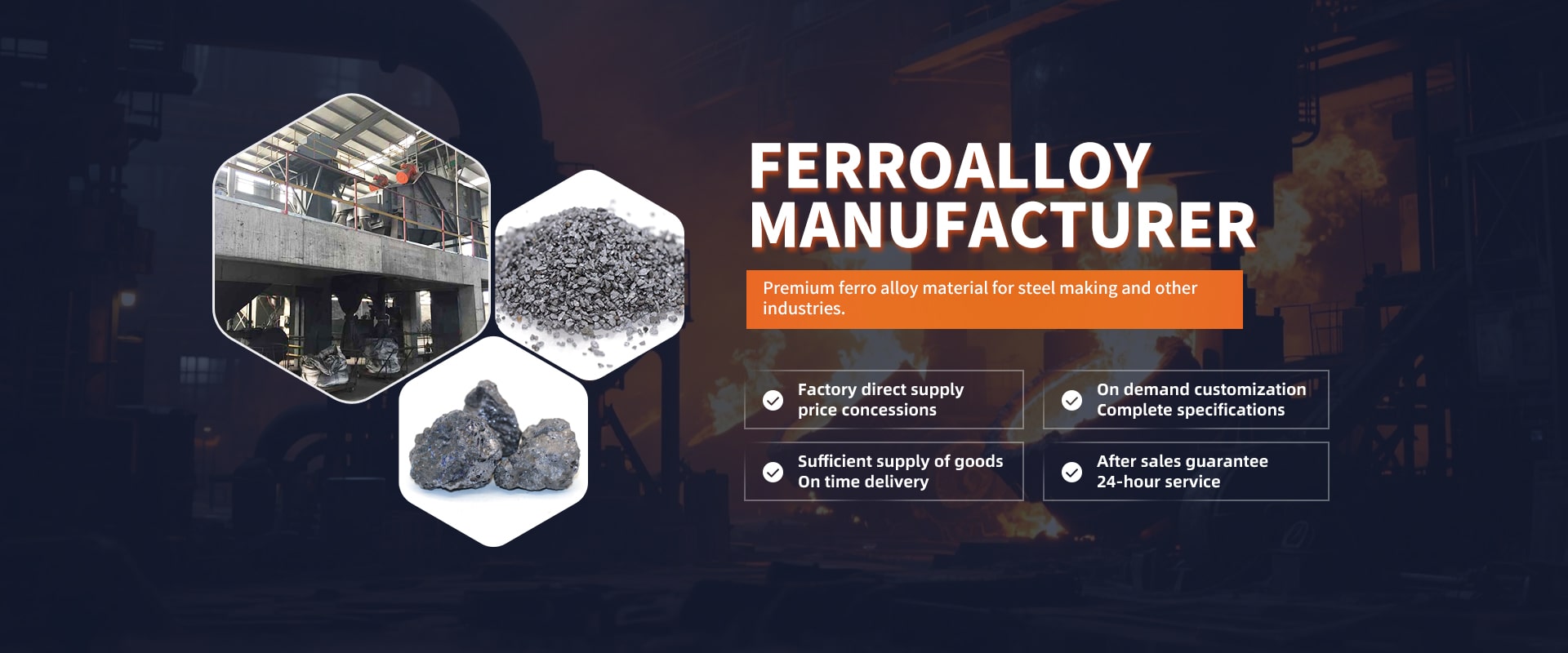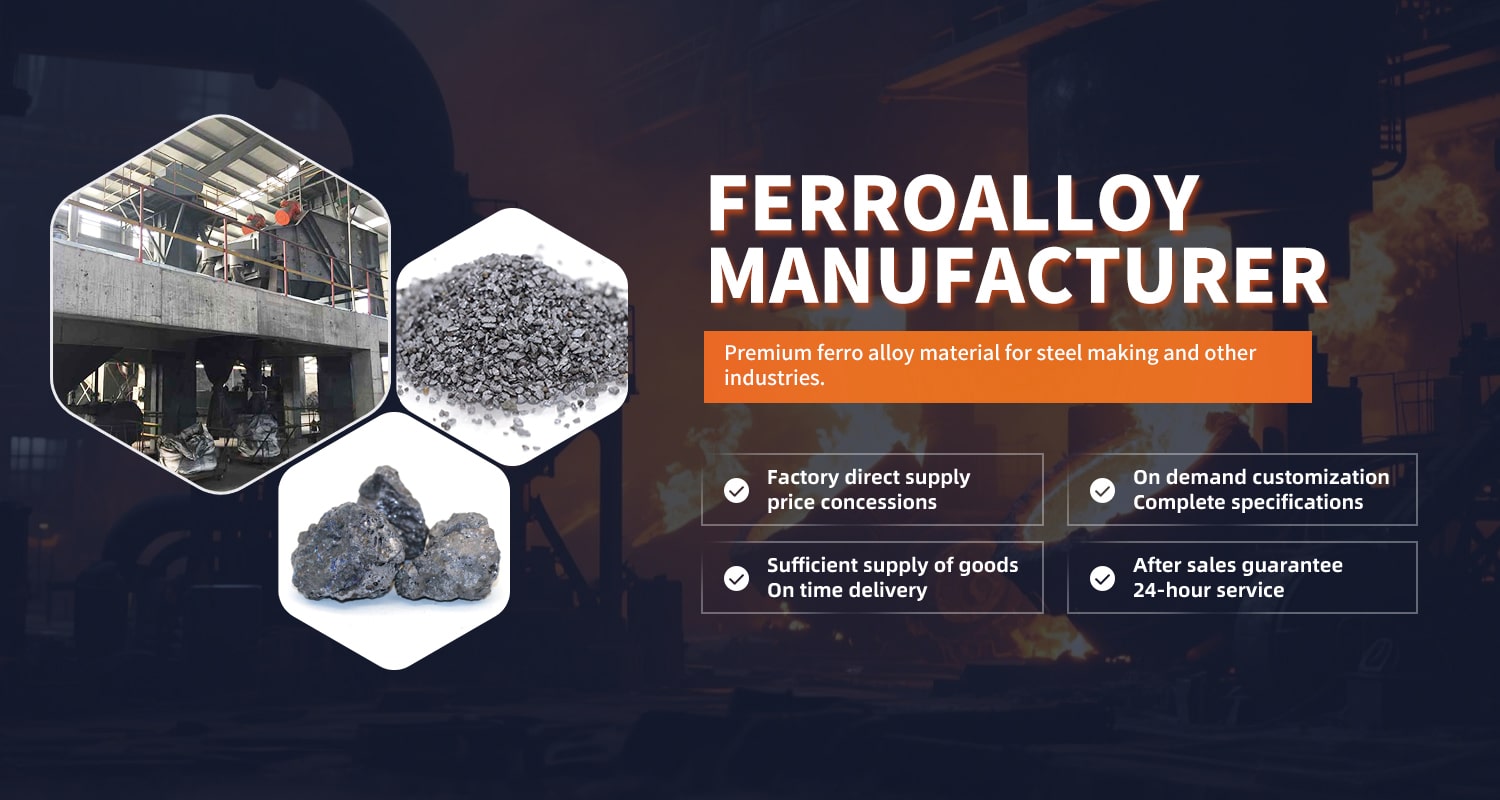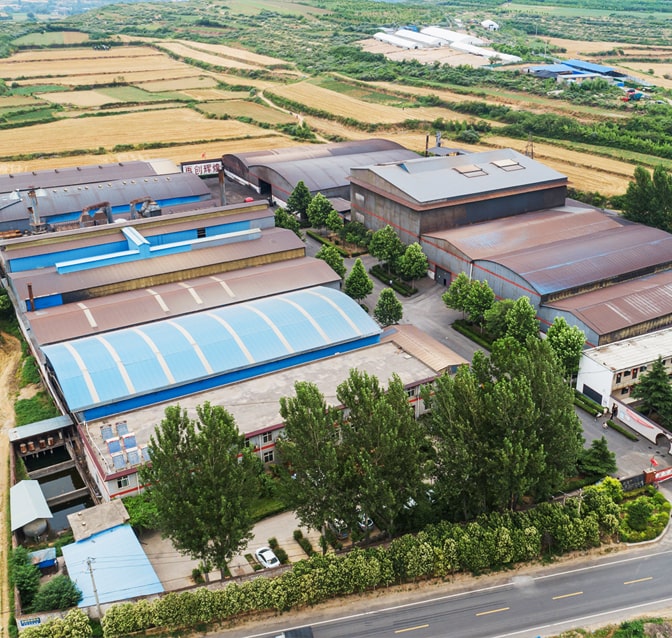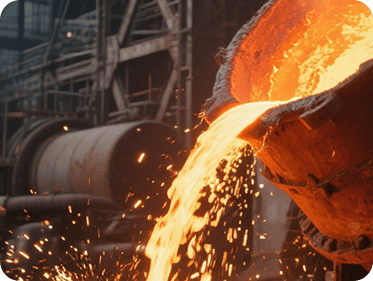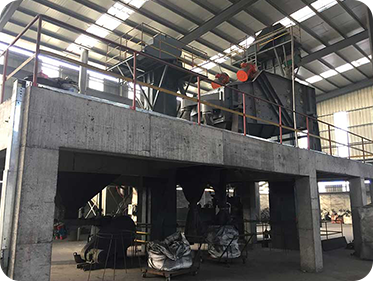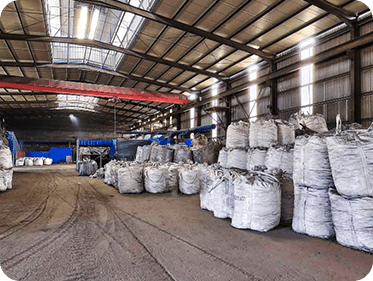Late Inoculation vs Ladle Inoculation: Which Delivers More Consistent Results?
2026.02.16
Inoculation plays a critical role in cast iron production by promoting graphite nucleation and controlling microstructure. Among the commonly used methods, ladle inoculation and late inoculation are the most widely applied. While both aim to improve graphite formation and reduce chill tendency, they differ significantly in effectiveness, stability, and process control. This article compares the two methods from a practical and metallurgical perspective to determine which delivers more consistent results in modern foundry operations. Understanding the Two Inoculation MethodsWhat Is Ladle Inoculation?Ladle inoculation involves adding inoculant directly into the ladle during tapping or immediately after molten iron is transferred from the furnace. The inoculant dissolves in the melt and initiates graphite nucleation early in the solidification process.This method is simple, widely adopted, and easy to implement, making it suitable for standard gray iron and ductile iron production.What Is Late Inoculation?Late inoculation refers to adding inoculant as close as possible to the point of pouring, typically through stream inoculation or in-mold inoculation. By introducing the inoculant at a later stage, this method minimizes inoculation fading and preserves active nucleation sites until solidification begins.Late inoculation is increasingly favored in high-quality and thin-section castings where microstructural consistency is critical.Metallurgical Impact on Cast Iron Quality1. Graphite Nucleation EfficiencyLadle inoculation provides early nucleation but is more susceptible to fading, especially when holding times are long. Late inoculation maintains higher nucleation activity during solidification, resulting in finer and more uniformly distributed graphite.2. Chill Tendency and Section SensitivityLate inoculation is more effective in reducing chill in thin sections and complex geometries. Ladle inoculation may be sufficient for thick sections but can struggle with chill control when thermal gradients are high. Process Stability and Consistency1. Inoculation FadingInoculation fading remains one of the biggest challenges in cast iron production. Because ladle inoculation occurs earlier, its effectiveness decreases over time. Late inoculation significantly reduces fading, leading to more predictable results.2. Operational ControlWhile ladle inoculation is operationally simple, it offers limited flexibility once the iron is poured. Late inoculation allows for more precise control of addition rate and timing, making it easier to fine-tune casting quality.Late Inoculation vs. Ladle InoculationAspectLadle InoculationLate InoculationAddition timingDuring tapping or ladle fillingDuring pouring or in-moldResistance to fadingModerate to lowHighGraphite nucleation activityGood initiallyStrong and sustainedChill controlModerateExcellentSection sensitivityHigherLowerProcess complexityLowMedium to highConsistency of resultsProcess-dependentHighly consistentTypical applicationsStandard gray & ductile ironThin sections, high-spec castingsWhich Method Delivers More Consistent Results?When Ladle Inoculation Is SufficientFor foundries producing conventional castings with stable chemistry and short holding times, ladle inoculation remains a cost-effective and reliable solution.When Late Inoculation Is the Better ChoiceFor applications requiring tight microstructural control, reduced scrap rates, and superior consistency—especially in thin-wall or critical castings—late inoculation clearly delivers better results. Both ladle inoculation and late inoculation have their place in cast iron production. However, when consistency and quality stability are the primary objectives, late inoculation provides a clear metallurgical advantage by minimizing fading and maintaining active graphite nucleation until solidification. As foundry processes become more demanding, late inoculation is increasingly becoming the preferred solution for high-performance cast iron castings.
MORE
Silicon Slag in Foundry Applications: Performance and Cost Balance
2026.02.06
In foundry operations, silicon is an essential element for controlling microstructure, improving molten metal fluidity, and enhancing the mechanical properties of castings. Traditionally, ferrosilicon has been the primary silicon-bearing additive used in cast iron and steel casting production.However, with rising alloy costs and increasing attention to resource efficiency, silicon slag has gradually attracted interest as an alternative silicon source. Its lower cost and reasonable silicon content make it a practical option for foundries seeking a balance between performance and cost. What Is Silicon Slag?Silicon slag is a by-product generated during the production of silicon metal or ferrosilicon. It contains a certain amount of free silicon, along with silicon compounds and oxides such as CaO and Al₂O₃. Depending on production conditions and source, silicon content typically ranges from 30% to 70%. Typical Characteristics of Silicon Slag Used in FoundriesMedium silicon content with a clear cost advantageHigher impurity levels compared to standard ferrosiliconComposition variability requiring proper controlAvailable in lump or crushed forms for flexible chargingPerformance of Silicon Slag in Foundry Applications1. Effect on Melt Chemistry and MicrostructureWhen applied correctly, silicon slag can effectively contribute silicon to the melt, supporting graphite formation in cast iron and stabilizing ferrite–pearlite structures. Although silicon recovery is generally lower than that of ferrosilicon, optimized charging practices and process control can significantly reduce this gap.2. Influence on Casting QualityIn practical applications, many foundries report acceptable surface quality and mechanical performance when using silicon slag, particularly in gray iron and certain ductile iron grades where extreme precision in silicon control is not required.Cost Comparison: Silicon Slag vs. FerrosiliconItemSilicon SlagFerrosiliconSilicon ContentMedium(30-70%)High(65-75%)Unit CostLowerHigherSilicon RecoveryMediumHighComposition StabilityModerateHighMain AdvantageCost efficiencyPerformance stability When Silicon Slag Makes Economic SenseSilicon slag is especially suitable for foundries with:High-volume and continuous productionStable furnace operationStrong cost-reduction objectivesExperience in managing variable raw materialsAs a professional ferroalloy producer and metallurgical material supplier, Hongshun is capable of manufacturing and supplying silicon slag with controlled chemical composition and flexible specifications to meet the practical needs of foundry operations. Hongshun silicon slag is typically supplied with silicon content ranging from 40% to 70%, with customized grades available upon request. Product forms include lump and crushed material, with common size ranges such as 10-50 mm and 10-100 mm, allowing easy adaptation to different furnace types and charging practices. Supported by stable sourcing from silicon metal and ferrosilicon production lines, Hongshun ensures consistent quality through chemical analysis control and process management. With practical experience in serving foundries focused on alloy cost optimization, Hongshun silicon slag offers a reliable balance between performance stability and cost efficiency, helping foundry customers achieve economical and sustainable production.
MORE
Higher Mn or Higher Si? How Silico Manganese Grade Selection Impacts Steel Quality
2026.01.30
Silico Manganese (SiMn) plays a dual role in modern steelmaking, acting as both a deoxidizer and an alloying additive. Although often treated as a standard ferroalloy, different silico manganese grades vary significantly in their manganese (Mn) and silicon (Si) ratios. These differences directly influence steel chemistry stability, metallurgical efficiency, and final product quality.Choosing between higher manganese or higher silicon silico manganese is not a simple comparison of chemical content. It is a decision that affects alloy recovery, process control, and total production cost. The Metallurgical Roles of Mn and Si in SteelManganese and silicon perform distinct but complementary functions during steelmaking.Manganese (Mn) primarily improves mechanical properties by increasing strength, toughness, and hardenability. It also reacts with sulfur to form MnS, reducing the risk of hot shortness and improving casting performance.Silicon (Si) is one of the most effective deoxidizing elements in steelmaking. It reduces dissolved oxygen in molten steel, improves slag fluidity, and supports cleaner steel with fewer oxygen-related inclusions.While both elements are essential, their balance determines how efficiently silico manganese performs in real production conditions.High-Mn vs. High-Si Silico Manganese: Composition ComparisonThe table below shows a typical comparison between high-manganese and high-silicon silico manganese grades used in industrial steelmaking.ItemHigh-Mn SiMnHigh-Si SiMnMn Content (%)65-7060-63Si Content (%)14-1618-20Primary FunctionAlloying & strength controlDeoxidation & slag controlMn Recovery StabilityHighMediumDeoxidation StrengthMediumHighRisk of Over-SiLowMedium–HighTypical ApplicationsAlloy steel, rebar, special steelCarbon steel, structural steelWhen Higher Mn Silico Manganese Is the Better ChoiceHigh-manganese silico manganese is typically selected when alloying efficiency and mechanical performance are the main concerns.1. It provides more stable manganese recovery, which is critical for steels with strict strength and toughness requirements.2. It reduces dependence on additional ferro manganese, simplifying alloy addition and composition control.3. It improves sulfur control, particularly in steels sensitive to hot cracking.However, high-Mn grades require proper temperature control to ensure effective melting and optimal recovery.Why Mn–Si Balance Matters More Than Absolute ValuesIn practice, steel quality is determined not by the highest Mn or Si content, but by how well the alloy fits the production process.1. Furnace type (BOF, EAF, IF) influences reaction speed and recovery behavior.2. Addition timing affects whether SiMn acts mainly as a deoxidizer or an alloying agent.3. Overall cost efficiency depends on total alloy consumption, rework risk, and chemistry stability—not unit alloy price.An unbalanced Mn/Si ratio often leads to fluctuating chemistry, higher alloy consumption, and hidden production costs. Practical Grade Matching in Steelmaking OperationsBased on industrial experience, silico manganese grades are commonly matched as follows:High-Mn SiMn is suitable for alloy steel, special steel, and rebars requiring consistent mechanical properties.High-Si SiMn is preferred for carbon steel and structural steel emphasizing deoxidation efficiency.Balanced Mn–Si grades are widely used in general-purpose steelmaking where stability and flexibility are required.Customized particle size—lump, granule, or fines—further improves melting behavior and recovery efficiency.Hongshun' s Silico Manganese Supply PhilosophyWith extensive experience in ferroalloy production and metallurgical supply, Hongshun focuses on delivering silico manganese solutions aligned with real furnace conditions rather than theoretical composition alone.1. Multiple SiMn grades with controlled Mn/Si ratios2. Low and stable impurity levels (P, S)3. Customized sizing for different furnaces and feeding systems4. Long-term quality consistency for stable production planningThis approach helps steelmakers achieve predictable chemistry, improved alloy recovery, and optimized total cost per ton of steel.The key question in silico manganese selection is not simply “higher Mn or higher Si,” but which grade delivers the most stable, controllable, and cost-effective results in a specific steelmaking process.Well-matched silico manganese grades improve steel quality, simplify operations, and reduce hidden risks—making grade selection a critical factor in modern steelmaking performance.
MORE
Ferro Silicon vs. Silicon Metal: Which Is More Efficient as a Silicon Additive?
2026.01.19
In steelmaking and foundry operations, silicon is a critical element used for deoxidation, alloying, and microstructure control. Among the available silicon-bearing materials, Ferro Silicon (FeSi) and Silicon Metal are the two most commonly used additives.While both supply silicon to molten metal, their efficiency in real production depends on more than chemical purity alone. Based on practical metallurgical experience and long-term supply feedback, companies like Hongshun, with years of involvement in ferroalloy manufacturing and application support, observe clear differences between the two materials in daily operations. Understanding the Role of Silicon in MetallurgySilicon plays several essential roles in metallurgical processes:Acts as a strong deoxidizer, reducing dissolved oxygenImproves strength, elasticity, and corrosion resistancePromotes graphite formation in cast ironEnhances melt fluidity and process stabilityIn practice, the efficiency of a silicon additive is determined by how consistently and predictably silicon is recovered, not just by its nominal silicon content.What Is Ferro Silicon?Ferro Silicon is an iron–silicon alloy typically containing 45%–75% silicon, with iron acting as a carrier that improves dissolution behavior in molten metal. Common grades include FeSi 65, FeSi 72, and FeSi 75.Based on Hongshun’s production practices and long-term customer application experience, well-controlled Ferro Silicon demonstrates stable chemical composition, predictable silicon recovery, and smooth dissolution, helping minimize furnace disturbance and support consistent metallurgical performance.Typical Applications:Deoxidation in carbon and alloy steelAlloying additive in EAF and induction furnacesInoculant base material for foundry useWhat Is Silicon Metal?Silicon Metal contains 98%–99.9% elemental silicon and is produced through the carbothermic reduction of quartz. While it offers extremely high silicon purity, it lacks iron as a carrier element, which affects its behavior during addition. As a result, Silicon Metal exhibits very high silicon concentration, strong chemical reactivity, a higher melting point, and an increased risk of oxidation loss, requiring more precise control during metallurgical processing.Typical Applications:Aluminum alloy productionChemical and photovoltaic industriesSpecial steel grades requiring minimal iron inputKey Factors Affecting Silicon Addition Efficiency1. Silicon Recovery RateDespite its higher silicon content, Silicon Metal often suffers from greater oxidation losses during steelmaking, especially under less-than-ideal temperature or timing conditions.Ferro Silicon generally provides more stable and repeatable recovery, which is why suppliers like Hongshun focus on composition control and particle size optimization to support consistent results across different furnaces.2. Dissolution and Process StabilityFerro Silicon dissolves gradually and evenly, helping to:Avoid local overreactionReduce temperature fluctuationMaintain smoother furnace operationSilicon Metal requires stricter operational control and may increase the need for furnace adjustments.3. Cost Efficiency in Real ProductionTrue efficiency should be measured by cost per unit of recovered silicon, not by silicon percentage alone.Direct Comparison: Ferro Silicon vs. Silicon MetalAspectFerro Silicon Silicon MetalTypical Si Content45%-75%98%-99.9%Silicon Recovery StabilityHighMedium to LowOxidation Loss RiskLowerHigherDissolution BehaviorControlled and smoothAggressiveOperational SensitivityLowHighCost per TonLowerHigherCost per Recovered SiStable and predictableOften higherCommon UseSteelmaking & foundrySpecial alloys, non-ferrousWhich Is More Efficient in Practice?Steelmaking ApplicationsFor most carbon and alloy steel production, Ferro Silicon delivers higher overall efficiency, offering:Stable silicon recoveryLower operational riskBetter cost predictabilityThis is why many steel producers working with Hongshun prioritize process-adapted Ferro Silicon grades rather than chasing maximum silicon purity.Foundry ApplicationsIn foundry operations, Ferro Silicon remains the preferred choice due to its:Positive influence on graphite formationCompatibility with inoculation practicesPredictable metallurgical performanceSilicon Metal is rarely used due to its high reactivity and limited process tolerance. Although silicon metal has a higher theoretical silicon content, ferrosilicon is often a more efficient silicon additive in steelmaking and foundry applications when overall recovery rate, process stability, and total cost are taken into account.Choosing the right silicon source is not about which parameter "looks higher", but about whether it delivers stable, controllable, and sustainable performance in actual production. As a professional ferroalloy manufacturer and supplier, Hongshun Industrial produces and supplies a wide range of ferrosilicon and silicon metal grades and specifications to meet different metallurgical process requirements.Hongshun' s ferrosilicon products include commonly used grades such as FeSi65, FeSi72, and FeSi75. Silicon metal is available in standard grades such as 553 and 441, as well as high-purity silicon metal. Supported by a stable quality control system and flexible production capabilities, Hongshun helps customers select the most suitable silicon additive to achieve consistent, efficient, and reliable metallurgical performance.
MORE
